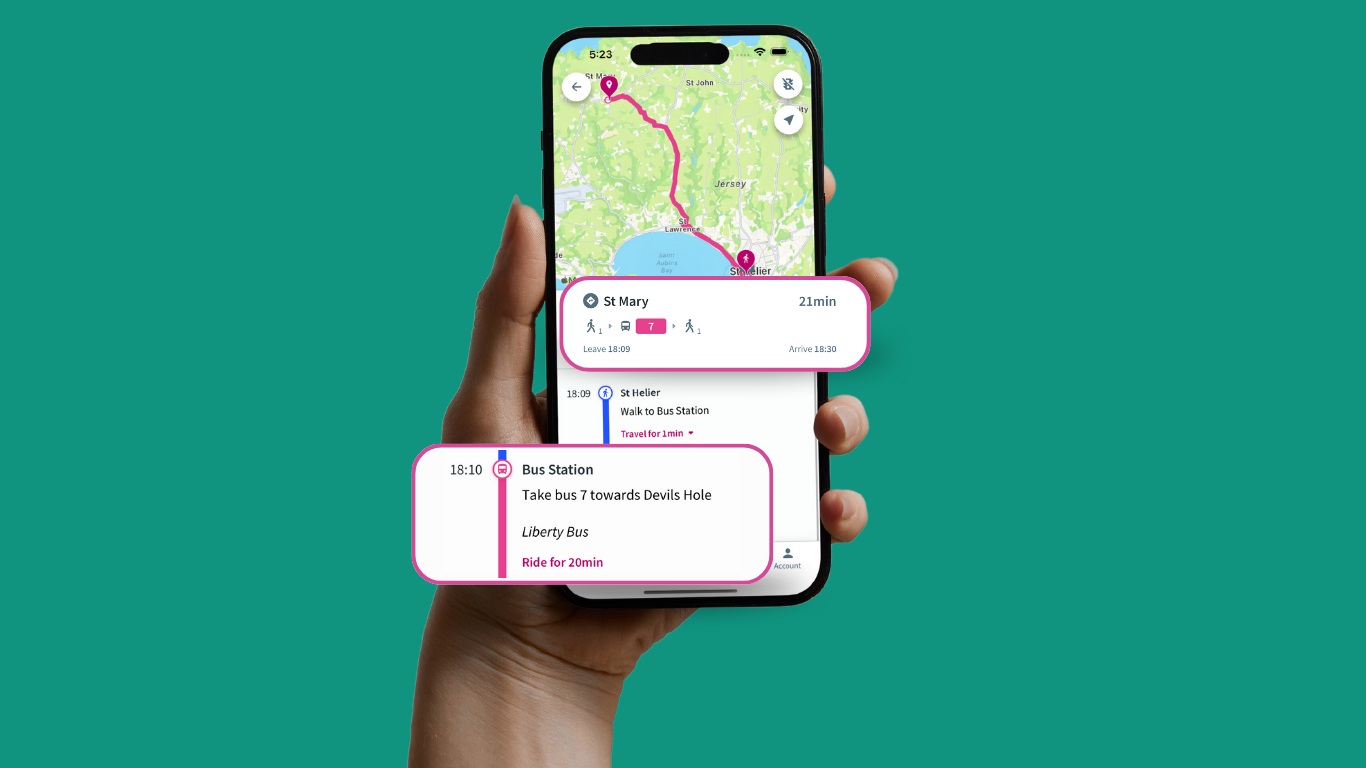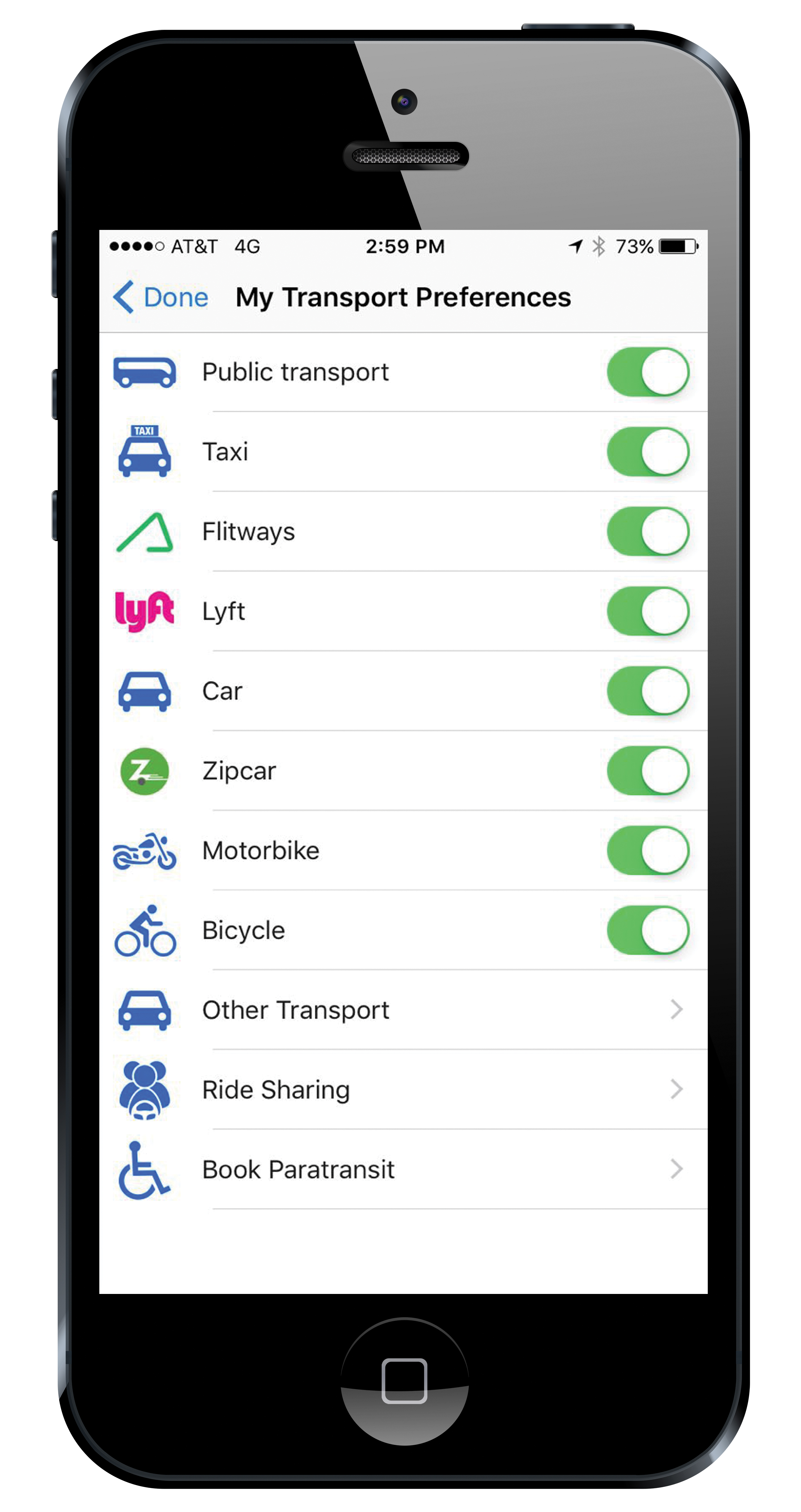The fast-growing interest in Mobility-as-a-Service (
These latest systems are designed for MaaS providers and build on the company’s traditional tolling and traffic management solutions. Pedro Bento, executive director for marketing and sales at A-to-Be, describes MoveBeyond as a multi-modal back office system which links to the various transport operators’ (bus, train, vehicle share…) existing systems. In doing so MoveBeyond not only handles transaction management, billing, enforcement, certified payment clearance and fraud control, it also manages and implements the business rules and provides management analytics.
Once a traveller has used a MaaS app to define the journey they want to undertake, MoveBeyond calculates the various travel options with reference to the user’s preferences and live travel information, supported in a range of mobility commercial bundles offered by a MaaS Provider. Having selected their preferred travel option, MoveBeyond verifies the transaction and all parties are provided with confirmation. Anonymised high-level information about travellers’ routines is also available for travel management planning.
A learning function within MoveBeyond helps to improve the overall travel experience by continually refining the options suggested to users depending on their previous selections.
Where necessary, gates, barriers or even cycle hire lockers can be opened directly by the MaaS provider using LinkBeyond. According to Bento, the use of this piece of smart hardware means that all types of transport provision can be incorporated in the MaaS offering.
“With these two systems a MaaS provider is ready to go - and if required we can provide the app too,” says Bento.
Traffic modelling software specialist
PTV UK director Devrim Kara, describes MaaS Modeller as a strategic planning tool that allows city authorities to assess different MaaS concepts and design their integration with the existing multi-modal transport infrastructure. MaaS Modeller can also support fleet operators to design feasible services in consideration of existing city transport system performance and patterns, fleet/vehicle configurations and operating cost/revenue scenarios. The system can calculate a wide range of KPIs (reflecting the objectives of authorities and operators) which can encourage collaboration in deploying MaaS services.
Kara describes MaaS Operator as a despatching component – effectively the MaaS component for a taxi or public transport control room and will be available later this year as a real-time operations tool for trip requests and vehicle assignments across MaaS fleets. It will also include a data warehouse solution for analysing and optimising the system as well as monitoring system performance and vehicle occupancy.
Still under development is MaaS Controller which will offer real-time control of connected vehicles and infrastructure, traffic lights optimisation and predictive routing optimisation, forming the components for a real-time city transport network operating system.
According to Kara, MaaS Operator provides the traffic component of a full MaaS ecosystem to work alongside third party components that focus on payment, communication and other aspects of the user experience.
Australian based SkedGo is a small company having a big impact in the MaaS sector. Its TripGo trip planning app currently covers 200 cities from Tromso in Norway to Bahia Blanca in Argentina and has a large concentration of coverage in the US, parts of Europe and the east coast of Australia.
TripGo can incorporate trains, buses, tram, metro, car share, bike share, taxi and walking in its route planning depending on the availability of data feeds and APIs from the various participating transport operators in each city. When viewed on a computer, the modes and number of routes covered in each location are displayed.
The company also allows access to their app back-end via an API which enables third parties to include the route finding element in their own white-labelled app. As such its technology is behind an increasing number of early MaaS offerings including MaaS Global, RioGo and Xerox’s (now
In populating its routing apps SkedGo takes all participating transport operators’ information from their static and real-time data feeds as well as APIs and processes them by its mixed modal routing engine to create trip routings and options using any combination of private, public and commercial transport. In some cities, such as Sydney and Toronto, the app uses the available real-time information to let users know if a bus has seats available.
The system allows individuals to prioritise between reducing travel time, cost, CO2 emissions or modal transfers and now includes an in-built preference for directing cyclists towards cycle paths with routing results indicating which parts of a route are cycle friendly. And in a growing number of cities, the system can provide wheelchair-accessibility information for public transport and walking routes.
While SkedGo’s platform can enable transport (and other) providers and MaaS operators to book their services through the app, currently this is only applicable to certain parts of a journey such as Uber, Lyft, Swiftfleet, Car2Go and a few others. “Additionally we can make a payment option available anywhere as long as the transport operator (or other service provider) can give us an API that allows for selling their services,” says SkedGo founder and CEO, Claus von Hessberg.
The sale of ‘tickets’ for mass transit agencies through the app is conducted via mobile payment partners with options under consideration in Australia and New Zealand. Currently Finland is the only place where some public transport rides can be purchased. “The bottleneck is the transport service providers,” adds von Hessberg
When asked if a city authority which already has open transport API’s could use SkedGo’s systems to offer an ‘off-the-shelf’ MaaS service, he replies: “Yes we can do that.”
Such an offering can also include SkedGo’s global partners including SwiftFleet (which covers the top 500 car rental companies globally), Uber and other national and international offerings. While white-labelling allows an enterprise or authority to retain ownership, there would be a setting up cost (typically between £100,000 and £200,000) plus volume-dependant API charges and a small levy for the mobile ticketing operation. Alternatively it can be completely free of charge for the authority if it endorses TripGo and certain commercial players to take a transaction fee on each sale.
In terms of a payback, von Hessberg says: “With transport integration it doesn’t make sense to drive into downtown. We are working on smoothing intermodal switches by telling people where there are car parks near bus stations and metro lines. This is essential if MaaS is to succeed and will increase public transport ridership which will offset the cost of providing the service via the app.”
To date the app, in all its guises, has been downloaded by more than one million users and provides about eight million travel plans per month.











